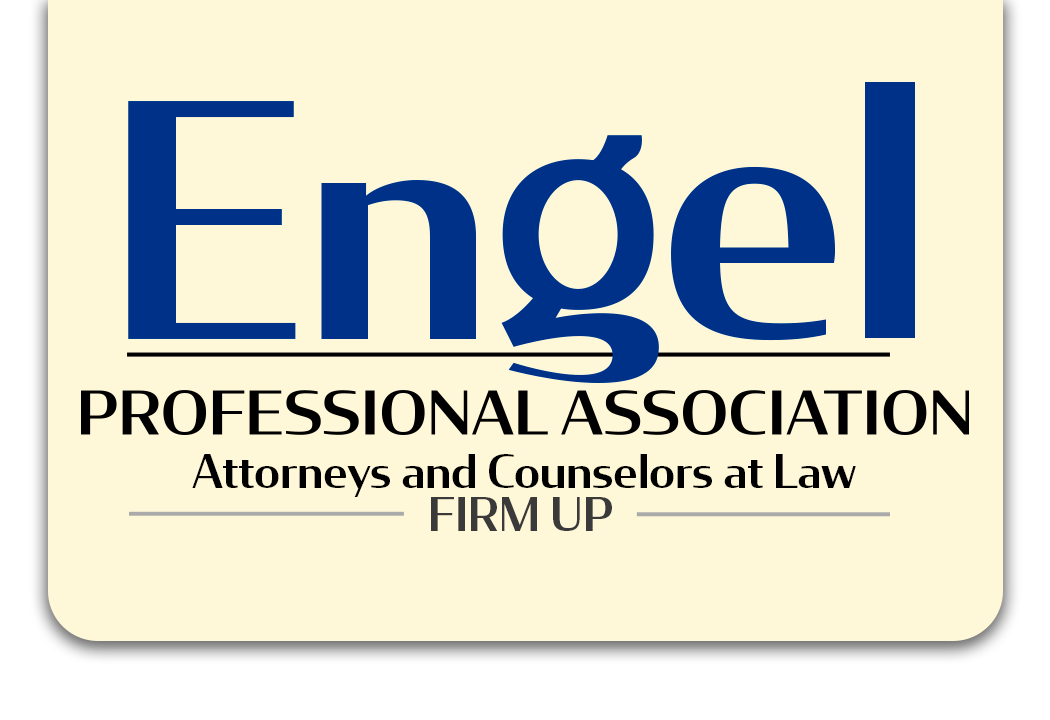KNOWLEDGEABLE.
EXPERIENCED.
INNOVATIVE.
BUSINESS LAW ATTORNEY BASED IN MINNEAPOLIS, MINNESOTA
Starting a business is an exciting decision, but it’s not for the faint of heart. When you decide to be your own boss, you also choose to take on the legal responsibility that comes with running your own operation. It can be thrilling, but it also involves a significant amount of paperwork.
Before you begin selling your products or services, make sure that your business is legally official and structured in the way that works best for you. At Engel Professional Association, I work hard to support the legal needs of my clients in Minneapolis and St. Paul, Minnesota.
Business Formation in Minneapolis
To start a business, you’ll need to choose an entity type and set up the necessary contracts. These decisions may affect how much you’ll have to pay in taxes.
Choosing an Entity Type
First, you’ll need to choose an entity type for your business. You can structure your business as a:
Partnership: As the name suggests, in a partnership there are at least two owners. it can be set up in several different forms.
Sole Proprietorship: A sole proprietorship is when one person is the business owner and performs their work under their own name (e.g., John Smith). If it’s under a different name, then a Certificate of Assumed Name must be filed.
C Corporation: This business entity passes income, losses, deductions, and credits to its shareholders. Certain IRS requirements must be met before you can form a C Corporation.
Limited Liability Company (LLC): This is a very common business entity type. With an LLC, your personal liability for anything that may go wrong with your business will be limited.
Setting Up Contracts
According to the U.S. Census Bureau, there were 151,495 employer establishments in Minnesota in 2019. These businesses are all dependent upon contracts—whether they’re with the partners who have founded the business, the suppliers, or service providers. Setting up a contract correctly involves meeting several requirements so that the contract is legally binding.
While there are key baseline requirements for any contract, some states have more stringent requirements for specific types of contracts. If you’re wondering if this is the case in Minnesota, contact a business attorney to be certain that your contract is legally binding.
Contract Disputes
It’s unfortunate, but it happens: a person who has signed a contract doesn’t uphold their end of the agreement.
Contract disputes happen more often than you might think. There are two main types: material breaches and anticipatory breaches.
A material breach is the most serious type of contract dispute. Essentially, there is no way that the original purpose of the contract will be fulfilled. There are several key questions that must be answered to determine if a material breach occurred.
In an
anticipatory breach, one party refuses to honor the contract as promised, no matter when the work was supposed to happen. This is also often referred to as a repudiation.
Resolving Disputes
Resolving either type of breach requires significant negotiating. In an anticipatory breach situation, the sooner the dispute can be resolved, the better, as it frees up both parties to pursue other contracts. In a material breach, resolving the dispute may be more complicated.
Business Dissolution
If it’s time to let go of a business, then you need to pursue business dissolution.
Reasons for Dissolving a Business
You may decide to dissolve your business for several reasons. First, it will help you avoid fees and taxes that you would otherwise be required to pay. It’s also important that your creditors know that your business will no longer be able to incur future debts. Additionally, it’s required that you officially dissolve your business with the state if it is no longer in operation.
The Process
When you originally established your business, you signed an operating agreement, which should have guidelines on how the business will be dissolved. You must pay your business taxes and notify your creditors. Then, you should file your articles of dissolution with the state of Minnesota.
GROW YOUR BUSINESS
BUSINESS LAW ATTORNEY BASED IN MINNEAPOLIS, MINNESOTA
Our team at Engel Professional Association wants to help you achieve your business goals. I work with business owners in Minneapolis and St. Paul, Minnesota, to set up and manage their legal needs. Outside of the Twin Cities, I also work with clients in Mankato, Maple Grove, St. Cloud, and Woodbury to help secure the best outcomes for their business. Contact us today for your consultation to discuss your business’ legal needs.

Leave a Message
We will get back to you as soon as possible.
Please try again later.


